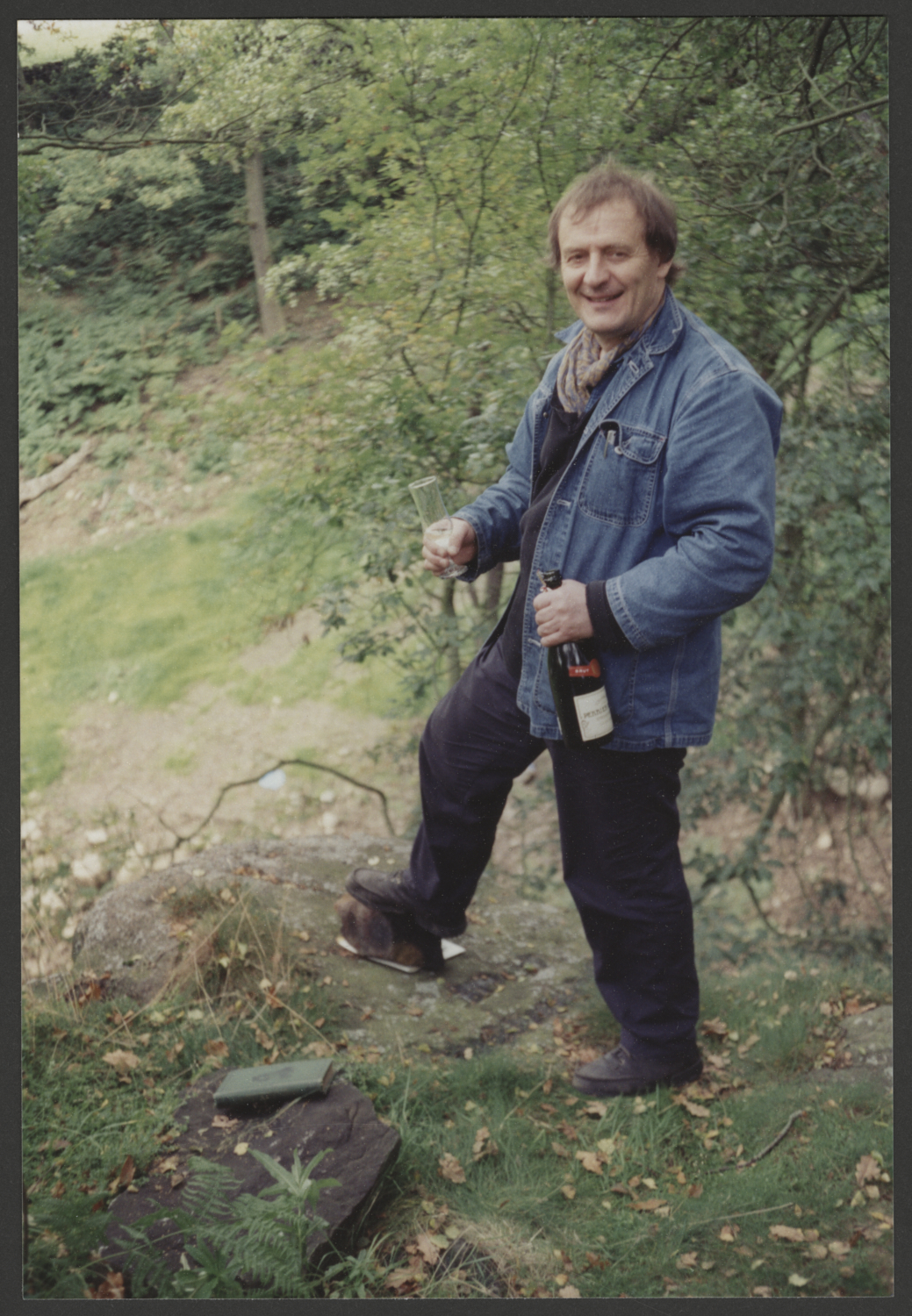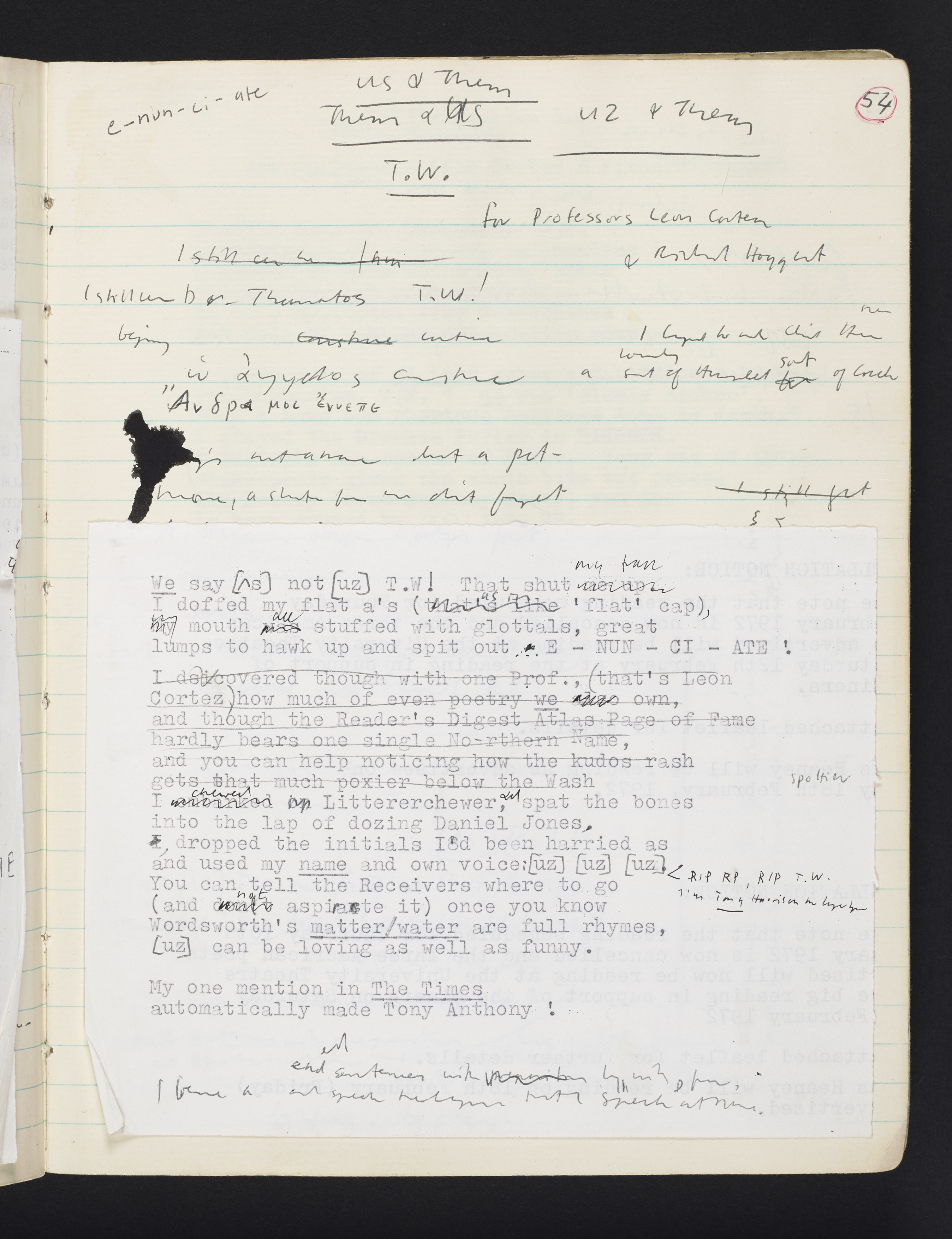The University of Leeds has paid tribute to prominent poet and alumnus, Tony Harrison.
On Friday 26th September, the famous playwright passed away at 88 years old.
Tony was born in Beeston, Leeds. He grew up in the area, being educated in the city and beginning his career here.
Following a life of poignant and successful writings, the University of Leeds proudly holds his archive.
Tony exhibited a talent for writing at an early age and won a scholarship to Leeds Grammar School. He went on to enrol as a student at the university, where he would socialise with fellow creatives and develop his burgeoning career. Alongside Nobel laureate Wole Soyinka and comedian Barry Cryer, he wrote sketches and performed in student revues at the Empire Theatre on Briggate.

Tony Harrison, washing John Nicholson’s carved autograph with champagne before the premiere of ‘Poetry or Bust’, via the University of Leeds
Tony saw poetry as a tool to be utilised for communicating important issues across the world, exemplified in his work as a poetic war correspondent for The Guardian. Later, his roles for television would reach an even wider audience. His film poem V, set in Holbeck Cemetery, paid tribute to the memory of his parents.
Today, the University’s cultural collections hold The Tony Harrison Archive, consisting of an extraordinary history of works relating to his work for publication, theatre, film, and television.  Page from the manuscript of Tony Harrison’s 1974 poem, ‘Them & [uz]’, Cultural Collections & Galleries at the University of Leeds
Page from the manuscript of Tony Harrison’s 1974 poem, ‘Them & [uz]’, Cultural Collections & Galleries at the University of Leeds
Describing his range of writings, Tony said: “Poetry is all I write, whether for books, or readings, or for the National Theatre, or for the opera house and concert hall, or even for TV.”
Sarah Prescott, a literary archivist in cultural collections at the University of Leeds, said: “Tony Harrison was a public poet, writing in his own working-class, Yorkshire voice, which was remarkably consistent throughout his work.”
In 2015, Tony received the David Cohen Prize for literature, recognising a lifetime of achievement and his lasting contributions to poetry, theatre, and film.
Bloodaxe Books, a publisher of his works, offered that it was “immensely saddened” by the news of his death, and that he “had been unwell for some years.”
